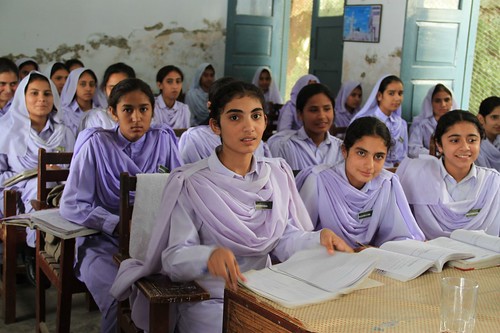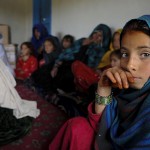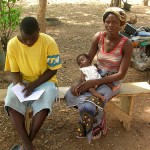In Rural Pakistan, a Struggle to Rebuild and Expand Girls’ Education
According to news reports and non-profit collaborative Panos, schools are making a recovery in Pakistan’s Swat Valley near the Afghan-Pakistan border, where Taliban attacks destroyed more than 400 of the region’s 1,576 schools between 2001 and 2009. Swat Valley schools are rebuilding the destroyed facilities (70% of which were girl’s schools) after years of work by local NGOs and receiving Pakistani government funding.
 In fact, many of the girls living in Swat Valley were out of school for nearly two years during 2008 and 2009, precious lost time considering that Pakistan’s most recent Annual Status of Education Report had the national average literacy rate for school-age children at 41.2%. A slightly higher percentage than the reported national literacy statistic for mothers at 34.5%. A major discrepancy in literacy rates exists between Pakistan’s rural and urban districts, with literacy rates as high as 76% for children and 81% for mothers in cities like Lahore and Karachi. A separate 2011 report by the Pakistan Education Task Force revealed the country had seven million children not in primary school, with one in ten of all the world’s children not attending primary school living in Pakistan. Moreover, the report stated that only one-third of rural Pakistani women had ever attended school, and nearly two-thirds of rural youth were illiterate.
In fact, many of the girls living in Swat Valley were out of school for nearly two years during 2008 and 2009, precious lost time considering that Pakistan’s most recent Annual Status of Education Report had the national average literacy rate for school-age children at 41.2%. A slightly higher percentage than the reported national literacy statistic for mothers at 34.5%. A major discrepancy in literacy rates exists between Pakistan’s rural and urban districts, with literacy rates as high as 76% for children and 81% for mothers in cities like Lahore and Karachi. A separate 2011 report by the Pakistan Education Task Force revealed the country had seven million children not in primary school, with one in ten of all the world’s children not attending primary school living in Pakistan. Moreover, the report stated that only one-third of rural Pakistani women had ever attended school, and nearly two-thirds of rural youth were illiterate.
One local NGO working to rebuild and expand education in Swat Valley and the entire Khyber Pakhtunkhwa province is Khwendo Kor. With an estimated 800 schools destroyed in the area, as well as villages that have never had access to a school, Khwendo Kor is opening places of learning to provide rural girls and women with short courses that improve their literacy levels. The organization often locates one educated or promising girl in each village who can continue to run a school with the help of the non-profit’s guidance and funding. Though the UK government and other international agencies have pledged funding for girls’ education in the province, Khwendo Kor has 150 schools and little help in terms of national funding. However, they are hopeful of receiving more support from Pakistan’s government in the future. According to one local NGO stakeholder Ensaullah Khan, “With education, we can change our future. We can save the people from falling into the hands of extremists. We can empower them.”
Creative Commons Love: DFID – UK Department for International Development on Flickr.com
Written by Lauren Riggs









